
About PEER
Power, Environmental and Energy Research (PEER) Institute was originally established in 1998 as the PEER Center at California Institute of Technology (Caltech). Spun off in 2009, PEER Institute is now an independent, non-profit research organization dedicated to the incubation and commercialization of technologies in energy and environment sectors.
Locations
Located in Southern California, PEER Institute is in close proximity to several prestigious research universities including Caltech, USC and several UC campuses (UCLA, UCI and UCR).
Management
Currently PEER has over 20 researchers with Ph.D. degrees from diverse disciplines spanning physics, chemistry, materials science, chemical engineering, electrical engineering, petroleum engineering and environmental engineering.

Yongchun Tang, Ph.D.

Patrick Shuler, Ph.D.

Mario Blanco, Ph.D

Sheng Wu, Ph.D.

Mohammed Haroun, Ph.D.

Raymond Jiang, Ph.D.

Di Zhu, Ph.D.

Megan Sun, CFA
Advisory Board
PEER maintains close relationship with both academic and industrial partners. Several world-famous professors and industry leaders are currently serving as the advisors of PEER.

William A. Goddard III
Professor

George R. Gavalas
Professor
Sponsors and Collaborators

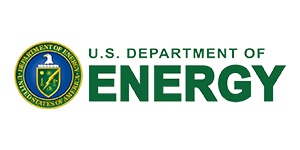



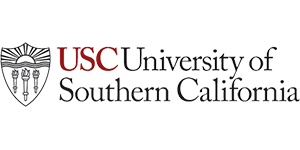
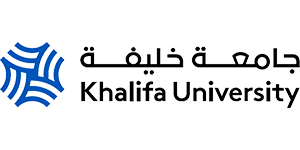
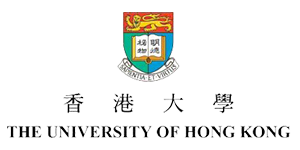
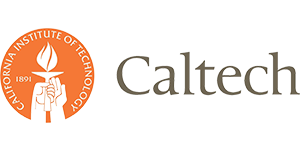

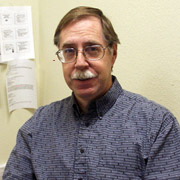 Dr. Shuler is the associate director of PEER Institute. After obtaining his Ph.D. degree in chemical engineering from University of Colorado, he had worked for Chevron for 21 years, directing multiple field implementation of chemical flooding projects before he joined PEER in 1999. Dr. Shuler’s main research interests include Enhanced Oil Recovery and scale and gas hydrate control. He is an esteemed petroleum engineer and has broad experience in the area of laboratory, field, and computer modeling studies of fluid treating issues for oil and gas operations worldwide.
Dr. Shuler is the associate director of PEER Institute. After obtaining his Ph.D. degree in chemical engineering from University of Colorado, he had worked for Chevron for 21 years, directing multiple field implementation of chemical flooding projects before he joined PEER in 1999. Dr. Shuler’s main research interests include Enhanced Oil Recovery and scale and gas hydrate control. He is an esteemed petroleum engineer and has broad experience in the area of laboratory, field, and computer modeling studies of fluid treating issues for oil and gas operations worldwide.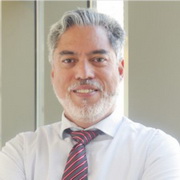 Dr. Blanco is the senior manager of energy technology at PEER. He obtained his Ph.D. degree from UCLA. Prior to joining PEER, he served as the director of the Process Simulation and Design Collaboration at Caltech for more than 20 years after a 10-year stint in the chemical industry. He has also served as a senior research staff of the PEER Institute to work on a number of collaborative R&D projects funded by DOE. His expertise areas are in the new theoretical method development in molecular mechanics, molecular dynamics, statistical mechanics, and their applications to molecular interaction in condensed media. His research background includes chemistry, molecular biology, physics, nanotechnology, with strong emphasis in sensor design, spectroscopy and materials surface science.
Dr. Blanco is the senior manager of energy technology at PEER. He obtained his Ph.D. degree from UCLA. Prior to joining PEER, he served as the director of the Process Simulation and Design Collaboration at Caltech for more than 20 years after a 10-year stint in the chemical industry. He has also served as a senior research staff of the PEER Institute to work on a number of collaborative R&D projects funded by DOE. His expertise areas are in the new theoretical method development in molecular mechanics, molecular dynamics, statistical mechanics, and their applications to molecular interaction in condensed media. His research background includes chemistry, molecular biology, physics, nanotechnology, with strong emphasis in sensor design, spectroscopy and materials surface science. Dr. Wu is the senior manager of environmental technology at PEER and is leading the research in sensors. These sensors are based on light-matter elastic (Mie scattering, Optical Coherence Tomography/OCT) and inelastic (absorption, RAMAN, Laser Induced Fluorescence/LIF) interactions, and on gas adsorption/desorption processes. Major projects include multiwavelength laser scattering and LIDAR, QCL MIR isotope analyzer, tunable lasers (UV-Vis-IR) and drift-free carbon polymer sensors. Sensors and techniques developed are applied to petroleum drilling and refinery, biological science and engineering. Prior to joining PEER, Dr. Wu got his Ph.D. degree in chemistry from Caltech.
Dr. Wu is the senior manager of environmental technology at PEER and is leading the research in sensors. These sensors are based on light-matter elastic (Mie scattering, Optical Coherence Tomography/OCT) and inelastic (absorption, RAMAN, Laser Induced Fluorescence/LIF) interactions, and on gas adsorption/desorption processes. Major projects include multiwavelength laser scattering and LIDAR, QCL MIR isotope analyzer, tunable lasers (UV-Vis-IR) and drift-free carbon polymer sensors. Sensors and techniques developed are applied to petroleum drilling and refinery, biological science and engineering. Prior to joining PEER, Dr. Wu got his Ph.D. degree in chemistry from Caltech.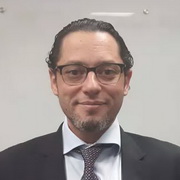 Dr. Haroun is the director of PEER Abu Dhabi Center. Being a technology professional with over 18 years of experience, he has hybrid and integrated research background in petroleum engineering and environmental engineering together with focus on energy policy that bridges aspects needed to reach comprehensive sustainable solutions. Dr. Haroun has over 80 publications, including conference proceedings, journals, book and 4 patents in emerging/hybrid EOR, oilfield scale control, environmental remediation from Abu Dhabi offshore muds, petroleum economics, risk and uncertainty in volumetric assessments of conventional and unconventional reservoirs and environomic water management technologies.
Dr. Haroun is the director of PEER Abu Dhabi Center. Being a technology professional with over 18 years of experience, he has hybrid and integrated research background in petroleum engineering and environmental engineering together with focus on energy policy that bridges aspects needed to reach comprehensive sustainable solutions. Dr. Haroun has over 80 publications, including conference proceedings, journals, book and 4 patents in emerging/hybrid EOR, oilfield scale control, environmental remediation from Abu Dhabi offshore muds, petroleum economics, risk and uncertainty in volumetric assessments of conventional and unconventional reservoirs and environomic water management technologies.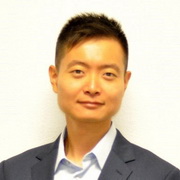 Dr. Jiang is the director of PEER Hong Kong Center. He obtained his Ph.D. degree in materials chemistry from the University of Chicago. At PEER, he is leading the efforts to develop a variety of polymer- and surfactant-based chemicals used in resource extraction and water treatment. Prior to joining PEER, Dr. Jiang’s research focus were on solution-processed thin film photovoltaics, colloidal synthesis and surface functionalization of nanomaterials, plasmonics of heavily-doped semiconductors and solid-state chemistry at nanoscale.
Dr. Jiang is the director of PEER Hong Kong Center. He obtained his Ph.D. degree in materials chemistry from the University of Chicago. At PEER, he is leading the efforts to develop a variety of polymer- and surfactant-based chemicals used in resource extraction and water treatment. Prior to joining PEER, Dr. Jiang’s research focus were on solution-processed thin film photovoltaics, colloidal synthesis and surface functionalization of nanomaterials, plasmonics of heavily-doped semiconductors and solid-state chemistry at nanoscale.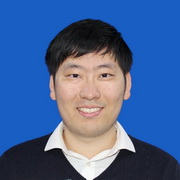 Dr. Zhu is the director of PEER Suzhou Center. He is interested in developing and exploiting new catalytic methane conversion routes. His work spans the range from nonoxidative methane to ethylene conversion, photochemical methane activation, all the way to the application of solid oxide fuel cells. His past research focused on diamond photocatalysis, using emitted solvated electrons to reduce nitrogen and carbon dioxide, and heterogeneous catalysis including low temperature cellulose conversion
Dr. Zhu is the director of PEER Suzhou Center. He is interested in developing and exploiting new catalytic methane conversion routes. His work spans the range from nonoxidative methane to ethylene conversion, photochemical methane activation, all the way to the application of solid oxide fuel cells. His past research focused on diamond photocatalysis, using emitted solvated electrons to reduce nitrogen and carbon dioxide, and heterogeneous catalysis including low temperature cellulose conversion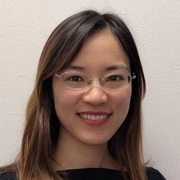 Ms. Sun is the chief financial officer at PEER. She is in charge of the finance, human resources and general management at PEER. Ms. Sun is also a Chartered Financial Analyst.
Ms. Sun is the chief financial officer at PEER. She is in charge of the finance, human resources and general management at PEER. Ms. Sun is also a Chartered Financial Analyst.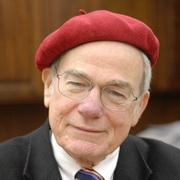 Prof. Goddard is the Charles and Mary Ferkel Professor of Chemistry and Applied Physics and Director of Materials and Process Simulation Center (MSC) at the California Institute of Technology. He has made many contributions to theoretical chemistry, such as the generalized valence bond (GVB) method for ab initio electronic structure calculations and the ReaxFF force field for classical molecular dynamics simulations. Prof. Goddard is a member of the International Academy of Quantum Molecular Science and the U.S. National Academy of Sciences.
Prof. Goddard is the Charles and Mary Ferkel Professor of Chemistry and Applied Physics and Director of Materials and Process Simulation Center (MSC) at the California Institute of Technology. He has made many contributions to theoretical chemistry, such as the generalized valence bond (GVB) method for ab initio electronic structure calculations and the ReaxFF force field for classical molecular dynamics simulations. Prof. Goddard is a member of the International Academy of Quantum Molecular Science and the U.S. National Academy of Sciences.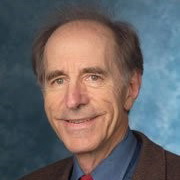 Prof. Gavalas is the Professor Emeritus of Chemical Engineering at Caltech. His research interests include inorganic membranes, Separations, clean fuel technology; and catalysis. Being a world-famous scientist in chemical engineering, Prof. Gavalas has made many important advances in the application of advanced mathematical tools to chemically reacting systems throughout his career.
Prof. Gavalas is the Professor Emeritus of Chemical Engineering at Caltech. His research interests include inorganic membranes, Separations, clean fuel technology; and catalysis. Being a world-famous scientist in chemical engineering, Prof. Gavalas has made many important advances in the application of advanced mathematical tools to chemically reacting systems throughout his career.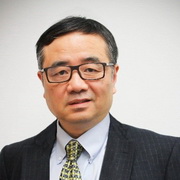 Dr. Tang is the co-founder and director of PEER Institute. Dr. Tang is a world-renowned geochemist who uses the fundamental principles of chemistry to explain subterranean geochemical processes during the hydrocarbon formation, evolution and production stages, and to design and apply cost-effective oilfield chemicals for improve hydrocarbon recovery in the environmentally responsible manner. He has pioneered in applying molecular modeling and designing techniques to many fields of organic geochemistry, surface chemistry, reaction kinetics, and petroleum chemistry. Dr. Tang has served as the corporation consultant for a number of global energy production companies.
Dr. Tang is the co-founder and director of PEER Institute. Dr. Tang is a world-renowned geochemist who uses the fundamental principles of chemistry to explain subterranean geochemical processes during the hydrocarbon formation, evolution and production stages, and to design and apply cost-effective oilfield chemicals for improve hydrocarbon recovery in the environmentally responsible manner. He has pioneered in applying molecular modeling and designing techniques to many fields of organic geochemistry, surface chemistry, reaction kinetics, and petroleum chemistry. Dr. Tang has served as the corporation consultant for a number of global energy production companies.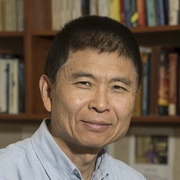 Prof. Wang is the Dick and Barbara Dickinson Professor of Chemical Engineering and the Executive Officer for Chemical Engineering at Caltech. Prof. Wang’s research group uses statistical mechanics to study a host of problems in the interdisciplinary areas of physical chemistry, material science and biophysics. A central goal of his work is to understand and predict properties based on the molecular characteristics of matter and systems, and to obtain simple insight to seemingly complex problems. His current activities revolve around three main themes: charged systems, including polyelectrolytes, salt-doped polymers, and electric double layers; nucleation or more generally barrier crossing in polymers and soft matter; and nonlinear rheology of polymer gels and entangled polymers.
Prof. Wang is the Dick and Barbara Dickinson Professor of Chemical Engineering and the Executive Officer for Chemical Engineering at Caltech. Prof. Wang’s research group uses statistical mechanics to study a host of problems in the interdisciplinary areas of physical chemistry, material science and biophysics. A central goal of his work is to understand and predict properties based on the molecular characteristics of matter and systems, and to obtain simple insight to seemingly complex problems. His current activities revolve around three main themes: charged systems, including polyelectrolytes, salt-doped polymers, and electric double layers; nucleation or more generally barrier crossing in polymers and soft matter; and nonlinear rheology of polymer gels and entangled polymers.